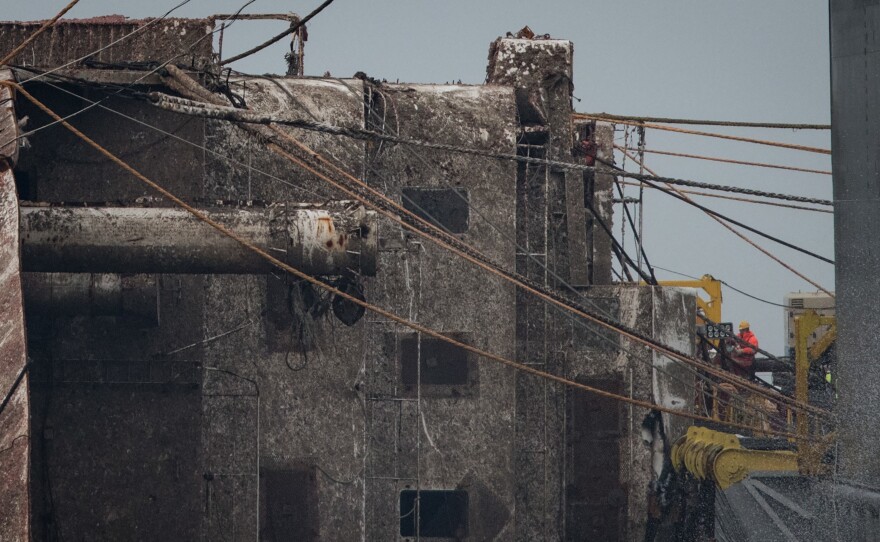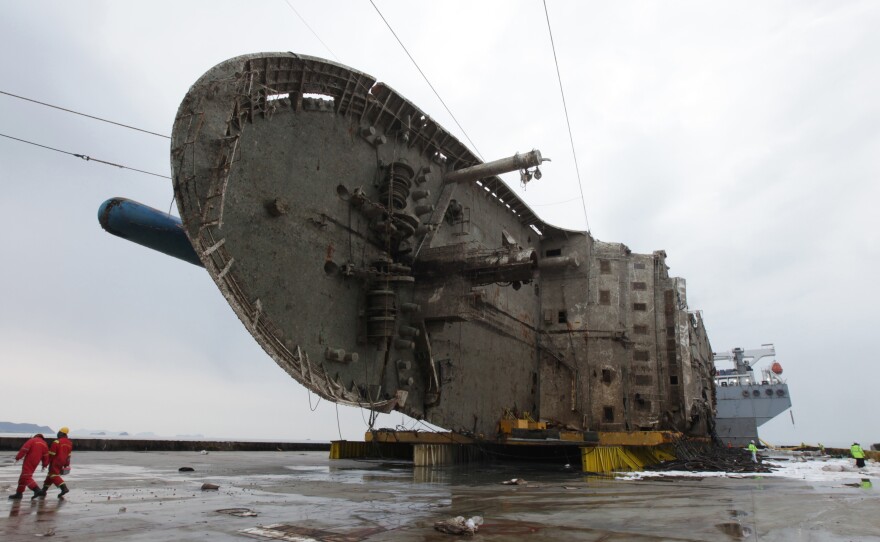
Updated at 11:40 a.m. ET
Just hours after South Korean officials announced they had found human bones and possessions in the corroded wreck of the Sewol, those same officials withdrew the claim Tuesday.
What appeared to be the "bones of a dead person on the deck" of the long-sunken ferry are actually from "an animal" instead, authorities said in a statement. The BBC reports the country's National Forensic Service conducted tests on the bones and found them to be animal bone fragments.
"We have found a total of six bones ranging in size from four to 18 centimeters," Ministry of Oceans and Fisheries official Lee Cheol-jo told reporters earlier in the day, according to CNN. "We believe they came through the windows and opening of the ferry's bow."
Lee added then that further DNA tests are still to come.
The clarification is another tragic twist for relatives of the nine victims who remain missing nearly three years after the Sewol capsized off the South Korean coast, killing 304 passengers — most of whom were teens on a school trip. As NPR's Laurel Wamsley reported, family members gathered last week to watch as salvage workers set about the difficult task of raising what's left of the 6,800-ton vessel and placing it in dry dock.
"The ship has come up, but not the nine people inside it," Lee Geum-hee, the mother of one of the missing victims, told local media, the BBC reports. "Please don't forget there are people inside the dirty, rusty and smelly wreckage... Please do the best and let us bring them back home."
The Associated Press notes that relatives of the missing passengers met Tuesday for "an emotional memorial service on a boat near the transport vessel holding the ferry, where representatives of Catholic and Protestant churches and Buddhists delivered prayers wishing for the remains of the nine to be recovered."
The fallout from the April 2014 sinking of the Sewol continues to reverberate in South Korea, as Laurel explained:
"In addition to searching for the bodies of the missing, there are also plans to form an investigation committee to better understand what caused the ferry to sink on April 16, 2014. Investigators found that the ship was carrying twice the legal limit of cargo when it sank; the captain and crew were rescued, but the students were told to stay in place, costing many lives, Elise reports. The ferry's captain was sentenced to life in prison after an appeals court found him guilty of committing 'murder through willful negligence.' "
Copyright 2017 NPR. To see more, visit http://www.npr.org/.






